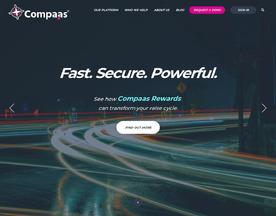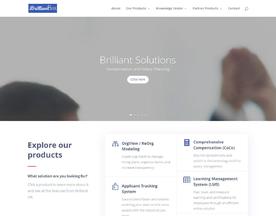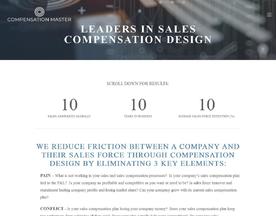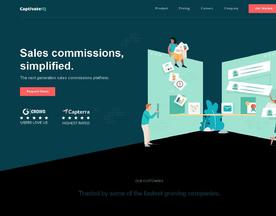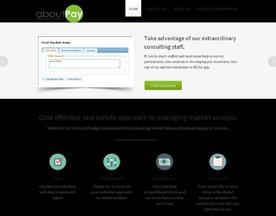Imagine managing a bustling company. The engine room of your enterprise comprises of employees – each bringing a unique skill, expertise, and value to the table. But here’s a thought: how do you quantify this value in monetary pay equity terms? How do you ensure that everyone is compensated fairly, equitably, and in a manner that mirrors their contribution? Now, layer on the intricacies of job roles, varying market standards, bonuses, allowances, and equity. Phew! It’s a Herculean task and, if not managed well, could result in discrepancies, disgruntled employees, or worse, potential legal disputes.
For years, organizations have grappled with these challenges, using age-old methods. Think about those overpopulated spreadsheets, stacked paper records, and late-night manual calculations. But in an era of technological innovation, surely there’s a better way? Enter: Compensation Management Software.
Compensation management software streamlines the process of planning, managing, and executing employee compensation strategies. It ensures fairness, consistency, and competitiveness in remunerating talent.
In the ensuing conversation, I’ll be your guide, leading you through the alleyways of compensation management in the digital age. Together, we’ll uncover the essence of the best compensation management software around, discuss its transformative benefits, and offer pearls of wisdom on how to select the right one. If you’ve ever pondered over the intricacies of employee compensation, or if you’ve been on the lookout for ways to revolutionize your current compensation system yourself, this deep dive is tailor-made for you. So grab your virtual helmet, as we navigate the fascinating world of compensation management in the 21st century. Let the exploration begin!

What is Compensation Management Software?
At its core, Compensation Management Software (CMS) is a technological marvel that comes to the rescue of HR professionals and business leaders, freeing them from the intricate web of pay-related calculations, compensation cycles, benchmarks, and policies. But what does it really mean, and why is it creating waves across industries?
Let’s think of CMS as the bridge that connects an employee’s performance with their financial rewards. In a dynamic business environment, merely giving an annual raise or a generic bonus isn’t sufficient. There’s a need to align all employee salaries and compensation with various metrics, ranging from individual performance, market trends, employee data, company profitability, to internal equity. This ensures that every penny an employee earns is not just a reflection of their hard work, but also aligns with the business’s broader goals and the industry’s competitive landscape.
Delving Deeper
A typical Compensation Management Software, at its very essence, provides a systematic platform to:
- Design and Structure Salaries: Create salary bands based on roles, experience, and industry benchmarks. This ensures that you’re neither overpaying nor underpaying any member of your team.
- Incentive and Bonus Management: Customize incentive programs and design bonuses that truly reflect an individual’s contribution. Be it sales commissions, performance bonuses, or spot rewards, a CMS aids in meticulous planning and distribution.
- Equity Compensation: For startups and certain industries, equity plays a significant role in the compensation package. CMS tools help in managing stock options, restricted stock units (RSUs), and other equity instruments, ensuring that employees are vested and rewarded appropriately.
- Analytics and Insights: In a world driven by data, a CMS doesn’t lag. These platforms offer analytics, enabling businesses to gain insights into compensation trends, discrepancies, and anomalies. This ensures proactive decision-making.
- Integration with Performance Management: What good is a compensation tool if it doesn’t consider performance? Many CMS platforms offer seamless integration with performance management systems, ensuring that rewards align perfectly with performance metrics.
What sets CMS apart is its adaptability. Whether you’re a small business looking to standardize pay or a multinational corporation aiming to globalize your compensation strategy while adhering to local nuances, CMS is your answer. Through automated workflows, real-time data access, and clear audit trails, these tools ensure that the often cumbersome process of compensation planning becomes streamlined, transparent, and error-free.
Key Points:
- CMS is the nexus between performance and pay, ensuring alignment with business goals.
- The software offers capabilities ranging from salary structuring to equity management.
- Analytics and integrations are fundamental features, allowing for strategic decision-making.
- Its adaptability makes it a must-have for businesses of all sizes and sectors.

How to Choose the Right Compensation Management Software for Your Business?
In the vast sea of software solutions, finding the perfect Compensation Management Software (CMS) for your unique business needs can seem like looking for a needle in a haystack. The choice you make will influence your company’s ability to attract, reward, and retain talent, making it pivotal for business success. But fret not! I’m here to help you sail smoothly through this decision-making process. Let’s explore the intricate nuances of choosing the right CMS for your business.
Understanding Your Needs
Before diving into the CMS market, take a step back and reflect upon what you truly need. Every organization is unique, with distinct compensation challenges:
- Scale and Complexity: A startup might need a simple tool for basic salary structuring, while a multinational corporation might require a comprehensive solution to manage complex compensation matrices across multiple countries.
- Future Growth: Consider where your business is heading. Will the software be scalable enough to accommodate your future needs as you grow?
- Types of Compensation: Does your organization solely rely on salaries, or are there other forms of compensation like equity, bonuses, or commissions? Ensure the CMS caters to all.
Delving into Features
- Integration with Existing Systems: The CMS should seamlessly blend with your existing HR Information Systems (HRIS), Payroll, and Performance Management tools. Integration ensures a unified HR ecosystem, making data flow smoother.
- User-Friendly Interface: A tool is effective only if people use it. An intuitive, easy-to-use interface ensures your HR team can make the most of the software without steep learning curves.
- Customization: No two businesses are alike. Your CMS should allow ample customization in terms of pay structures, bonus schemes, and even reporting.
- Data Security: Compensation data is sensitive. Ensure the software adheres to best-in-class security protocols to protect your data from breaches.
- Analytics and Reporting: In-depth analytics can provide valuable insights into pay disparities, trends, and anomalies, helping in informed decision-making.
Beyond the Tool: Vendor Considerations
- Customer Support: A responsive and knowledgeable customer support can make a world of difference, especially during the initial setup and any troubleshooting.
- Training and Onboarding: Check if the vendor provides comprehensive training sessions for your HR team. This ensures you extract maximum value from your investment.
- Updates and Upgrades: Compensation norms and regulations change. Your CMS should too. Ensure the vendor frequently updates the software to stay compliant and relevant.
Budget and ROI
It’s vital to consider the cost, but don’t let it be the sole determinant. Assess the software’s financial benefits and potential Return on Investment (ROI). While upfront costs might seem high, the right CMS can save you significantly in the long run by reducing errors, saving time, and optimizing compensation budgets.
Key Points:
- Begin by introspecting and understanding your organization’s unique needs.
- Delve into software features, ensuring it meets all your requirements.
- Consider vendor support, training, and commitment to updates.
- Always weigh the costs against the potential ROI to make an informed choice.

Software Tools to Consider
With the ever-growing digital landscape, the number of Compensation Management Software (CMS) tools available in the market is vast. Navigating through this ocean of options might feel daunting. So, to make your journey smoother, I’ve curated a list of some renowned CMS tools that have been making waves in the industry. Let’s dive in!
Workday Compensation
Why it stands out: Workday offers an all-in-one HR suite, and its compensation module is no exception. With features like compensation benchmarking, merit-based rewards, and stock planning, it offers a holistic approach to employee rewards. The software’s cloud-native structure ensures seamless updates and integrations.
beqom Total Compensation
Why it stands out: beqom focuses exclusively on compensation and performance, ensuring in-depth functionalities. It promises to handle all your compensation needs without compromise, from sales commissions to executive compensation. Its flexibility and adaptability cater to diverse business requirements.
PayScale
Why it stands out: PayScale isn’t just a CMS; it’s also a massive repository of compensation data. This tool offers real-time insights into market trends, ensuring your compensation packages remain competitive. The intuitive interface ensures ease of use.
Salary.com’s CompAnalyst
Why it stands out: CompAnalyst by Salary.com is a robust tool that offers compensation data and analytics in one platform. With features like job pricing, salary structures, and scenario planning, it ensures businesses can devise comprehensive compensation strategies.
UltiPro
Why it stands out: UltiPro offers a wide array of HR solutions, and its compensation module shines brightly. With features like merit-based pay and bonus management, UltiPro ensures businesses can reward talent effectively. Its in-depth reporting and analytics capabilities provide valuable insights.
PeopleFluent Compensation
Why it stands out: PeopleFluent focuses on creating an engaging employee experience. Its compensation module offers features like pay-for-performance, equity management, and budget optimization. The software is known for its adaptability, catering to various business needs.
Points to Remember When Considering Tools:
- Integration: Ensure the software integrates smoothly with your existing HR systems.
- Scalability: The tool should scale with your business needs, both current and future.
- Security: Compensation data is sensitive; prioritize platforms with robust security measures.
- Support & Training: Onboarding and continuous support can make or break your CMS experience. Opt for vendors known for their excellent customer service.
- Budget: While you shouldn’t compromise on essential features, ensure the tool fits within your budgetary constraints.
Key Points:
- The market is flooded with CMS options; pick one that aligns best with your business needs.
- From all-in-one HR suites to dedicated compensation platforms, there’s something for every requirement.
- Features, security, support, and budget should be your guiding factors when considering a tool.
- Always opt for platforms that offer regular updates, ensuring you remain compliant and ahead of industry trends.

FAQs
In the vast realm of Compensation Management Software (CMS), it’s natural to have questions. Let’s delve into some of the most frequently asked queries and demystify this domain further.
1. What exactly does Compensation Management Software do?
CMS is a digital platform for compensation management tools designed to simplify, automate, and optimize an organization’s compensation processes. It helps businesses design salary structures, manage various forms of compensation (like bonuses, commissions, and equity), and aligns employee pay with performance, market standards, and business goals.
2. Why can’t I just use spreadsheets for compensation management?
While spreadsheets are versatile, they’re prone to errors, especially with complex calculations. A dedicated CMS offers automation, reduces errors, provides integration with other HR tools, and scales with your business needs. Plus, security protocols in CMS ensure that sensitive compensation and salary data remains protected.
3. How does CMS tie into employee performance?
Many CMS solutions integrate seamlessly with Performance Management Systems. This ensures that compensation, whether bonuses, raises, or incentives, is directly linked to performance tracking an employee’s performance metrics, making the compensation process objective and fair.
4. Can CMS help with compliance and regulations?
Absolutely! A good CMS keeps track of global compensation regulations and tax laws, ensuring that your various compensation plans and packages remain compliant. Regular updates by vendors ensure you’re always in line with the latest regulations.
5. What about data security?
Top-tier CMS platforms prioritize data security. With features like encryption, regular backups, two-factor authentication, and GDPR compliance, you can rest assured that your sensitive compensation data remains in safe hands.
6. Is the software suitable for businesses of all sizes?
Yes. While the features and complexity might vary, there are CMS solutions tailored for startups, SMEs, and large enterprises. It’s all about choosing the one that aligns with your current and future needs.
7. How does CMS handle global compensation management?
For global businesses, CMS can be a game-changer. It can manage multiple currencies, consider varying tax laws, and even handle diverse compensation cultures, ensuring that your global workforce is compensated fairly and equitably.
8. How long does it typically take to implement a CMS?
The implementation duration varies based on the complexity of the software and the size of your organization. While some solutions might offer quick setups within days, larger, more complex systems might take weeks to months.
9. Will my HR team need special training to use CMS?
While most CMS platforms are user-friendly, initial training is beneficial. Many vendors provide comprehensive onboarding sessions, tutorials, and support to ensure your team is comfortable with the tool.
10. What if I face issues with the software post-purchase?
Reputable CMS vendors offer robust customer support. Whether you encounter a technical glitch or need guidance on a feature, their support teams are usually just a call or email away.
Key Points:
- CMS is more than just a digital spreadsheet; it’s a comprehensive tool designed for modern compensation challenges.
- The software ensures objective, fair, and compliant compensation, aligning closely with performance metrics.
- Security, global compensation handling, and scalability make CMS a must-have for businesses of all sizes.
- Training and vendor support play crucial roles in the seamless adoption and functioning of the tool.

The Evolution of Compensation Management
To truly appreciate the modern Compensation Management Software, it’s essential to understand how the compensation management tool itself has evolved over the years.
The Manual Era
In the early days of business and HR, compensation was managed manually. It wasn’t just about basic salaries; even bonuses and incentives were calculated by hand or using basic tools like calculators. This method of workforce management was time-consuming, prone to errors, and lacked the ability to process complex calculations efficiently.
Advent of Spreadsheets
With the digital revolution, businesses started using spreadsheets to manage compensation. They provided a more structured way of handling data, automating some calculations, and even visualizing certain aspects of compensation decisions. However, as businesses grew, these spreadsheets became complex, unwieldy, and were still prone to errors.
Birth of Dedicated CMS
Recognizing the gaps in existing systems, software developers began to design platforms specifically focused on compensation management. These compensation management platforms not only automated calculations but also integrated market data, facilitated performance-based rewards, and started offering analytics and insights.
Modern CMS – Beyond Just Compensation
Today’s CMS tools have transcended beyond mere compensation calculations. They are now intertwined with various core HR functions, offer predictive workforce analytics, ensure compliance, and play a pivotal role in talent management and retention strategies.
Key Points:
- Compensation management has evolved from manual processes to sophisticated software solutions.
- Modern CMS is not just about managing pay but offers a holistic approach to HR functions.

The Role of Analytics in CMS
In an age driven by data, the integration of analytics into CMS cannot be overstated.
Predictive Analytics
Modern CMS tools harness the power of AI and machine learning to provide predictive analytics. This helps businesses forecast budgets and sales performance, understand compensation trends, and even predict turnover rates based on compensation structures.
Descriptive Analytics
Descriptive analytics in CMS allows businesses to get a snapshot of their current compensation landscape. It provides insights into the average salaries, gaps in compensation, and the distribution of various forms of compensation like bonuses, and equity awards, and benefits.
Prescriptive Analytics
Prescriptive analytics in CMS goes a step further. Not only does it provide insights based on current data, but it also offers recommendations. For compensation analytics for instance, it can suggest adjustments in compensation structures to retain high-performing employees or recommend market-aligned adjustments.
Key Points:
- Analytics in CMS provides a data-driven approach to compensation management.
- Predictive, descriptive, and prescriptive analytics each play a unique role in shaping compensation strategies.

Future of Compensation Management Software
As businesses continue to evolve, so will the tools that support them. What might the future of CMS look like?
Integration with Blockchain
Blockchain can play a significant role in ensuring transparency and security in compensation management systems. Every transaction, be it a salary payout, bonus, or equity distribution, can be recorded securely and transparently.
Use of Augmented Reality (AR) and Virtual Reality (VR)
As remote work continues to gain traction, AR and VR can be integrated into CMS for virtual compensation reviews, immersive training sessions on compensation strategies, or even virtual health insurance benefits fairs.
Advanced AI-driven Insights
While AI already plays a role in modern CMS, its capabilities will only expand. AI could offer deeper insights, drive negotiations for salary benchmarking, or even help in crafting personalized employee compensation packages.
Key Points:
- The future of CMS lies in technology integrations, enhancing transparency, and offering personalized experiences.
- As business landscapes change, CMS will adapt to offer innovative solutions.

Conclusion
Embarking on the journey to find the right Compensation Management Software (CMS) for your business can seem like a Herculean task. But, as with many business decisions, the effort is well worth the reward. A robust CMS is more than just a tool—it’s an investment in your employee productivity and organization’s future. It’s about ensuring your team feels valued, recognized, and appropriately and fairly compensated for their hard work and dedication.
Compensation isn’t just about numbers. It’s deeply intertwined with company culture, employee satisfaction, retention rates, employee engagement, and overall business success. In a world where talent is a prized asset, having a systematic, fair, and transparent compensation strategy is paramount. And the right CMS plays an instrumental role in crafting this strategy.
Remember, the perfect CMS for one organization might not be ideal for another. It’s all about understanding your unique needs, goals, and challenges. Whether you’re a startup on the cusp of expansion, an SME aiming for consistent growth, or a large enterprise with global operations, there’s a CMS out there tailored for you.
As you navigate the world of compensation software, keep the insights and tips shared in this guide close to your heart. Engage with sales teams and vendors, ask the right questions, and always prioritize the well-being of your employees. After all, a well-compensated, happy, and motivated workforce is the cornerstone of any successful business.
Key Points:
- A CMS is more than a tool—it’s a crucial investment for future business success.
- Compensation shapes company culture and influences employee satisfaction and retention.
- Understand your needs, engage with vendors, and make an informed decision.
- Prioritize your workforce’s well-being, as they are the bedrock of your organization’s success.




